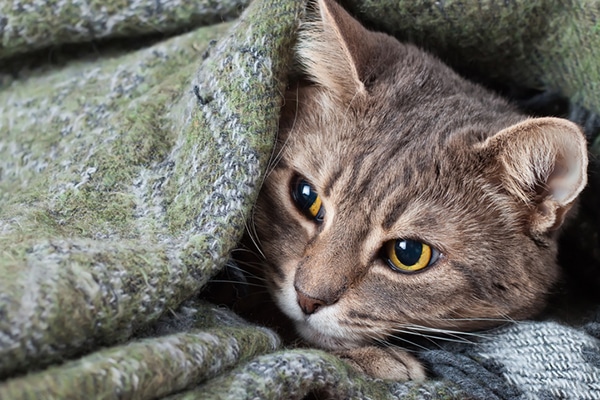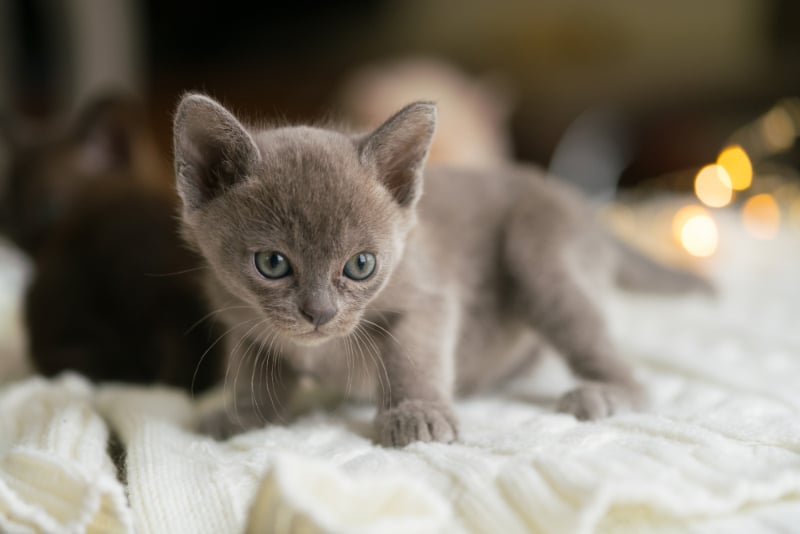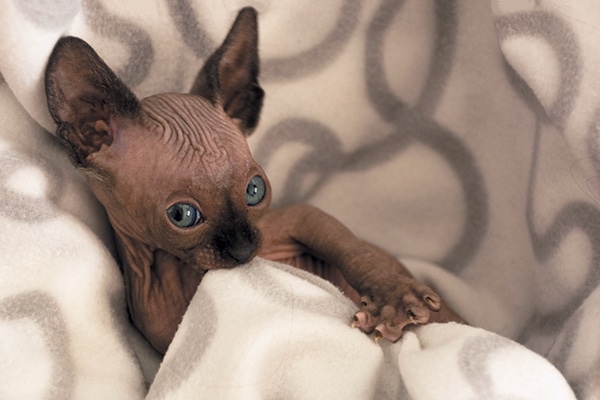About a week into our kitten Norton’s life at our house, we noticed that he was suckling himself, using one of his own nipples. He’d go at it in a really focused way, and knead his paws at the same time, purring loudly. Having no experience with this, we took him to the vet, who reassured us that the behavior was nothing to worry about. She noted that the nipple was not inflamed or infected. The vet said that kittens may outgrow this kitten suckling behavior, and that sometimes kitten suckling happens when a kitten has been orphaned too young. The latter had been something I wondered about.
Still, I wanted to find out more. Would this kitten suckling behavior go away? Did it mean he was stressed or just contented? If I distracted him, would he stop? (When Norton suckles, which now seems to be occurring less and less, nothing can distract him.)

Kitten suckling — what is it?
Kitten suckling can occur when cats suck on their nipples, other areas of skin and other objects. Cats might suckle on rugs, your skin tags, your ears or your fingers. Jamie Bluebell came to us as a kitten and for a very brief time, she would suckle on a skin tag on my husband’s armpit. She also liked to suck on the frames of his glasses. But Jamie got over it fairly quickly, and from what we know, we think that Jamie was not orphaned as young as Norton.
The causes of cat or kitten suckling
The causes of kitten suckling can include being separated from mom too early. Ideally, kittens should not be weaned from mom earlier than six weeks. But according to ASPCA information online, cat or kitten suckling can also be a sign of stress, compulsive behavior, or even just happiness or contentment. It’s a hard behavior to nail down.
Is kitten suckling bad for kitties?
Sometimes kittens suckling is harmless. But sometimes, according to this Catster article, cats or kittens can do damage to each other or themselves if they suckle too hard or for too long. The article refers to what is probably a high-stress situation — kittens in a Humane Society who are motherless and suckling each other to the point of damage.

Should you do anything about kitten suckling?
My vet proposed no solution. She saw no reason to be concerned in Norton’s case.
If you’re not concerned about suckling and your cat continues, you can try to make the situation a little safer. For example, if your cat loves to suckle blankets, make sure that the blanket fabric doesn’t pill or have loose threads that your cat could swallow.
Obviously, trying to physically stop your cat from suckling (in the moment) or yelling at your cat when he’s suckling are not good solutions. If your cat is suckling from stress, this will only stress him more.
Here’s what I’m going to do about kitten suckling
Most of what I’ve read (and observed at home) say to me that kitten suckling is not a bad thing. It seems that Norton is getting comfort, and he’s not acting like he’s doing it from stress. The site is not infected, as my vet pointed out, and we’re keeping an eye on that. The frequency of suckling gradually seems to be diminishing. And if we’re playing with Norton, or snuggling, suckling seems to be far from his mind. So I’ll wait it out, and see what happens. In my situation, I’m not worried. Norton seems happy and not stressed or compulsive.
In short — and the ASPCA article worded this helpfully — if the kitten suckling is interfering with your cat’s quality of life, then it’s time to seek help. If your cat is damaging his skin, or the skin of another, or seems to be suckling as a kind of stress response, seek help. Get the help of a certified cat behaviorist or your veterinarian.
Read more on similar cat behaviors on Catster.com:
- Cats Making Biscuits: All About Cat Kneading
- Reasons Why Cats Suck on Blankets or Clothing
- Fun Reasons for Cat Kneading
Featured Image Credit: ElenaBoronina, Shutterstock





